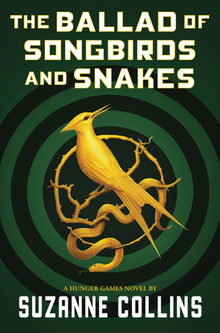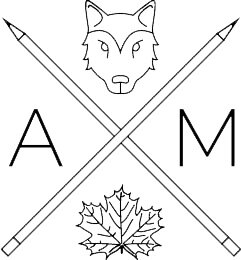Ten Books of 2020
What a year it's been. My reading habits have gone up and down this year, but one thing has stayed the same: consistently reading. I read through a lot of different media this year—physical books, PDF books, eBooks, and audiobooks. (For the full list of books, see my Goodreads page.) I read a lot of articles and reviews, along with essays and, yes, a little bit of poetry and some plays. Here, not in any order specifically, are ten books I read and thoroughly enjoyed in 2020.
Taylor G. Petrey, Tabernacles of Clay: Sexuality and Gender in Modern Mormonism

The scholarship around modern Mormonism, or rather the study of the Church of Jesus Christ of Latter-day Saints, its theology, and the culture and people it creates, is a rather limited field. Petrey's book is probably the only one out there on this subject, and it's a dang good one on it. He's measured, he's fair, and he's approachable. He shows his readers that the Church has, in fact, changed its understanding of gender and sexuality, grounding that change in a shift of control over bodies after the priesthood ban was lifted, and that the Church's view of sexuality is fixated on the porousness of gender as found within its teachings, doctrines, and theologies. The writing itself is easy to understand—a massive accomplishment, in my opinion, as Petrey is not only showing what modern Mormonism believes institutionally for gender and sexuality but also bringing that understanding into broader conversations around religion, gender, and sexuality. I highly, highly, highly recommend this book.
Suzanne Collins, The Ballad of Songbirds and Snakes

I didn't think I would want or even enjoy a prequel surrounding the man of Katniss Everdeen's nightmares, but I was pleasantly delighted when, in finishing this book, I had more philosophical thoughts on dystopia and agency than going into the book. The Ballad of Songbirds and Snakes shows why Collins is an excellent writer that leaves the reasoning to the reader as she presents conundrum after conundrum. I had a wonderful conversation with a friend after finishing this book, and neither of us could decide how or why the book ended the way it did because Collins leaves it up to interpretation while giving us enough clues to thread together different labyrinths. An excellent read that takes us back to Panem and back to ourselves.
Viktor E. Frankl, Man's Search for Meaning

For my last two semesters of my master's degree, I took a course on Sex, Gender, and Sexuality. In those courses, one follows Freud's will to pleasure, which centers our experience in the pleasure drive found within human beings. One usually wouldn't think that reading over and over again about pleasure can become unpleasurable, but after a while, it does. As such, it was nice to read this book and be introduced to Kierkegaardian will to meaning, which is a different way than the will to pleasure or the Nietzschean will to power. Logotherapy was a theoretical frame that helped Frankl survive the Holocaust and recover his life after such a harrowing event, and it is a new interest to me in my own studies now, thanks to this book.
Christina Lauren, Autoboyography

I can't believe it took me so long to finally read this book. Let me just say that this book is the best book, in my opinion, to nuance, discuss, and engage with cisgender male homosexuality and bisexuality and Latter-day Saint struggles. I've read a lot of autobiographies that engage with the subject, but this one, although fictional, presents the reality of the struggle in a way that allows the reader to actually feel what a person might go through when they are non-heterosexual and cisgender male in the Church. It is the best book, even greater than the many autobiographies out there, because it portrays a reality of love, rather than only a reflection.
Maggie Stiefvater, Call Down the Hawk

Stiefvater's abilities as a wordsmith is one of the most pleasurable things to experience in the world.
Chanel Miller, Know My Name

Miller's poise and finesse as she dictates the traumas of survivorship after being sexually assaulted and the personal and public battles that occur after that moment help to let people know her name and know the struggle of any survivor set adrift on the sea of survivorship.
Phil Stamper, The Gravity of Us

Heartwarming, hopeful, and heaven-sent, Stamper's The Gravity of Us fulfilled my space-loving geek inside and warmed my usually frozen heart.
Simon Wiesenthal, The Sunflower: On the Possibilities and Limits of Forgiveness

I took a course on the holocaust earlier this year, and we read this book. This book led me to write a brief blog post and then expand that post into a final paper for the course. Taking any course at a divinity school leads to a lot of personal reflection, but this course probably led to the most. The book itself asks what someone might do in the case of being asked to forgive someone who has done atrocities in their life. Most of us, especially those of us with a Christian upbringing, if asked that question, would hope that we could be forgiving, but the book itself, especially the symposium after the story, nuances that point, much better, I think, than Matthew 18.
Laurel Thatcher Ulrich, A House Full of Females: Plural Marriage and Women's Rights in Early Mormonism, 1835–1870

This book is a delight to read and from which to learn. Ulrich's writing opens up a theologically shifting world of early Mormonism as those early practitioners try to find their place in new paradigms, new faith, and new wonder.
Brandon Sanderson, Rhythm of War

"Journey before destination, you bastard."

